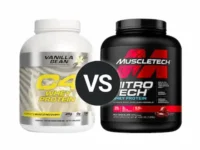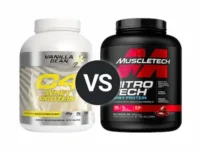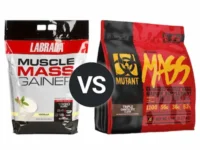Knowledge BaseYou're Questions Answered
Can protein powder increase athlete strength and endurance?
Yes, protein powder can increase an athlete's strength and endurance, but its effectiveness depends on various factors such as training status, type and timing of protein supplement, and dietary intake.
Protein is essential for muscle growth, repair, and maintenance, and adequate intake of dietary protein is crucial for optimizing athletic performance. Studies have found that protein supplementation can enhance muscle strength and endurance, especially when combined with resistance training. For example, a study published in the Journal of the International Society of Sports Nutrition found that protein supplementation increased muscle strength and size, muscle power, and endurance in both resistance and endurance exercise. Another meta-analysis published in the American Journal of Clinical Nutrition concluded that protein supplementation augments the adaptive response of skeletal muscle to resistance-type exercise training.
In addition to the type of protein supplement, timing of protein intake is also important for optimizing muscle protein synthesis and improving athletic performance. Research has shown that consuming protein within 30 minutes after exercise can lead to greater muscle protein synthesis and improved muscle recovery compared to consuming protein at other times during the day.
It is worth noting that not all protein supplements are equally effective. Different types of protein, such as whey, casein, and soy, have different rates of digestion and absorption, which can impact their effectiveness for muscle building and recovery. Whey protein, in particular, has been shown to be more effective for improving muscle protein synthesis and muscle recovery compared to other types of protein.
Overall, while protein powder can increase an athlete's strength and endurance, its effectiveness depends on various factors, including type and timing of protein supplement, dietary intake, and training status. Foe best results, athletes should consult with a registered dietitian or sports nutritionist to determine the appropriate type, amount, and timing of protein intake to optimize their performance.
- Jäger R, Kerksick CM, Campbell BI, et al. International Society of Sports Nutrition Position Stand: protein and exercise. J Int Soc Sports Nutr. 2017;14:20. doi:10.1186/s12970-017-0177-8
- Cermak NM, Res PT, de Groot LC, Saris WH, van Loon LJ. Protein supplementation augments the adaptive response of skeletal muscle to resistance-type exercise training: a meta-analysis. Am J Clin Nutr. 2012;96(6):1454-1464. doi:10.3945/ajcn.112.037556
- Pasiakos SM, Lieberman HR, McLellan TM. Effects of protein supplements on muscle damage, soreness and recovery of muscle function and physical performance: a systematic review. Sports Med. 2014;44(5):655-670. doi:10.1007/s40279-013-0137-7
- Tang JE, Moore DR, Kujbida GW, Tarnopolsky MA, Phillips SM. Ingestion of whey hydrolysate, casein, or soy protein isolate: effects on mixed muscle protein synthesis at rest and following resistance exercise in young men. J Appl Physiol (1985). 2009;107(3):987-992. doi:10.1152/japplphysiol.00076.2009
- Areta JL, Burke LM, Ross ML, Camera DM, West DW, Broad EM, Jeacocke NA, Moore DR, Stellingwerff T, Phillips SM, Hawley JA, Coffey VG. Timing and distribution of protein ingestion during prolonged recovery from resistance exercise alters myofibrillar protein synthesis. J Physiol. 2013;591(9):2319-2331. doi:10.1113/jphysiol.2012.244897
Related Questions
Related Reviews

Your Answer
We are a participant in the Amazon Services LLC Associates Program, an affiliate advertising program designed to provide a means for us to earn fees by linking to Amazon.com and affiliated sites.



